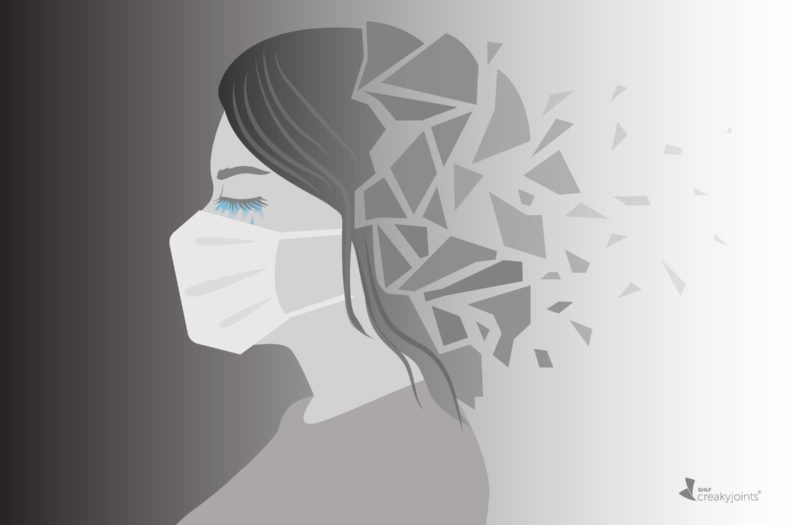Learn more about our FREE COVID-19 Patient Support Program for chronic illness patients and their loved ones.
“I want to know if the amount of grief I am feeling is normal.” As we looked at each other over our computer screens, I could see how worried and sad my client looked.
How do we quantify how much grief is normal?
The word grief is in the air — we hear about it, we read about it, and we feel it. Feelings of sadness, mourning, loss, endings: all of those emotions are around us and within us.
Some of us have lost people we love. Some of us feel grief for all the people who died from COVID-19 even if we did not personally know them.
Others mourn jobs or ways of living that made sense. We feel the loss of habits and places to relax. We know that our summer will not be the same.
Grief and Chronic Illness
When you’ve lived with chronic illness, the feeling of loss is a familiar one. A situation like the pandemic only amplifies what you have lived with since your diagnosis, adding another difficult layer on top of what you already experience. There is more than the usual experience of grief, and each of us have different circumstances.
So, there is no “normal” amount of grief.
Signs You May Need Help to Cope with Your Grief
However, there are warnings signs that signal that you may need some extra help. These include:
- Feeling sad or hopeless for most of every day
- Crying and not being able to stop for a period of time, several days or more
- Not being able to distract yourself
- Not wanting to eat
- Difficulty sleeping
- Not finding pleasure in things that usually make you happy
All of these suggest that you have moved from what is the current baseline of grief to a more serious experience. You may need to talk with a professional or check in with your physician and get some ongoing support.
If you feel that you are just sad a lot, or feeling the losses more acutely, but don’t feel like you’ve slipped into a danger zone, there are a few ways you can tend to that grief and help yourself feel some comfort.
How to Cope with Grief During COVID-19
Let yourself feel
The first is the most simple, but we avoid it — and that is to slow down and feel what you feel. We have gotten the idea that continuing to move along and not pay attention to our feelings will keep us from having to experience them. But that resistance only makes the feelings more powerful, and they will come calling – and maybe get expressed sideways. So, taking a few moments — at the beginning of the day, and a few other times to check in — and name where there might be some of the loss and sadness will help those feelings move through and not linger.
Be gentle with yourself
You can also be gentle with yourself. It is a hard time. Regular life goes on in some ways, and in others, nothing is the same. We are trying to hold both those realities simultaneously. Breathe into what is good. Allow yourself to name and feel what hurts.
Do things that comfort you
Get yourself some comfort. You know what helps you. For some it is a good cry. For others it is a bath or some easy movement. For others there are comfort foods (in moderation) or TV shows or a way to be in nature. Pay attention to what helps you feel better and what sustains you as you feel loss, and then make that a practice you can return to.
The good news is that most of us are quite resilient. Grief does not last forever. We do recover and go on. We have the wounds of our losses, but they become bearable over time. You will get through this.
Get Free Coronavirus Support for Chronic Illness Patients
Join the Global Healthy Living Foundation’s free COVID-19 Support Program for chronic illness patients and their families. We will be providing updated information, community support, and other resources tailored specifically to your health and safety. Join now.






